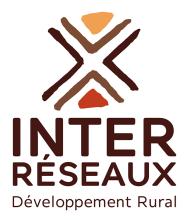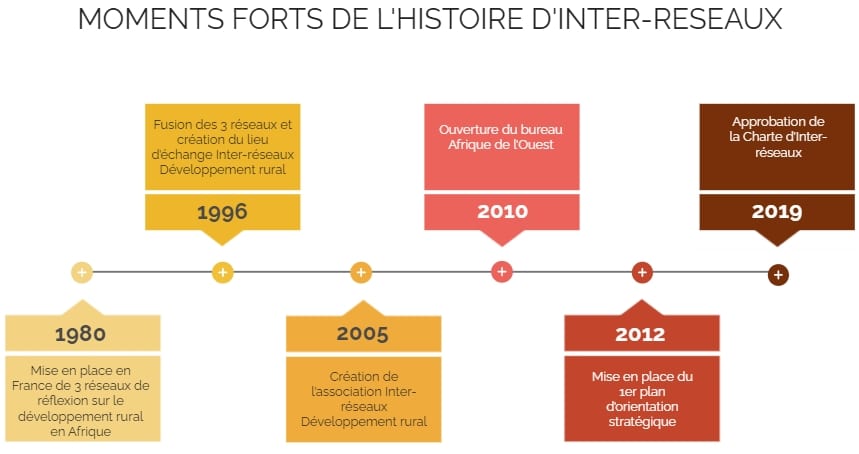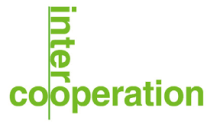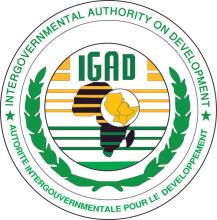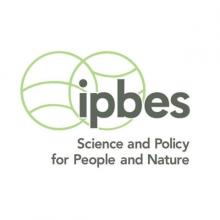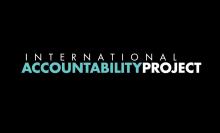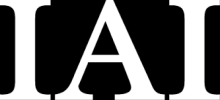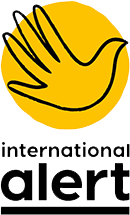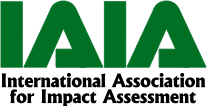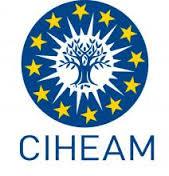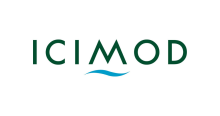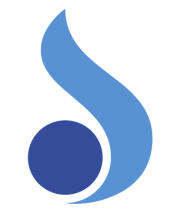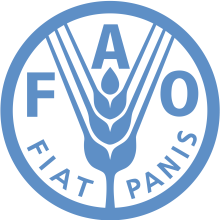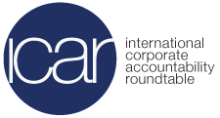La Biblioteca de la Tierra incluye recursos de más de 1.890 proveedores de información nacionales e internacionales. Aprenda más sobre las organizaciones e instituciones que utilizan el Land Portal para compartir sus investigaciones, datos e historias con acceso abierto.
Inter-American Development Bank
We work to improve lives in Latin America and the Caribbean. Through financial and technical support for countries working to reduce poverty and inequality, we help improve health and education, and advance infrastructure. Our aim is to achieve development in a sustainable, climate-friendly way. With a history dating back to 1959, today we are the leading source of development financing for Latin America and the Caribbean. We provide loans, grants, and technical assistance; and we conduct extensive research. We maintain a strong commitment to achieving measurable results and the highest standards of increased integrity, transparency, and accountability.
Inter-réseaux Développement rural
Inter-réseaux Développement rural est né en 1996 de la fusion de plusieurs réseaux thématiques sur le développement rural dont « Groupements, associations villageoises organisations paysannes » (GAO), « Recherche-Développement » et « Stratégies Alimentaires ». D’abord rattaché à l’Adeprina (Association pour le développement et la promotion de la recherche et de l’innovation à AgroParisTech), le réseau s’est constitué en association loi 1901 en 2005 pour garantir son autonomie de décision.
En 2012, alors que l’adhésion était individuelle, le réseau s’ouvre à des organisations européennes et africaines. Cette ouverture a lancé une nouvelle dynamique d’échanges et d’actions communes au sein du réseau. Depuis, de nouveaux membres sont régulièrement accueillis et contribuent à enrichir le réseau.
En 2017 a été construit le deuxième Plan d’Orientation Stratégique d’Inter-réseaux qui s’étend sur la période 2018-2022.
En 2019, la création d’une Charte d’Inter-réseaux a réaffirmé les valeurs et engagements communs du réseau.
Inter-reseaux et SOS Faim
L’objectif d’Inter-réseaux est de contribuer à créer les conditions pour que les acteurs engagés dans le développement agricole et rural puissent agir dans leurs environnements en faveur des populations rurales et d’une agriculture durable basée sur l’exploitation familiale.
Pour atteindre cet objectif, Inter-réseaux intervient et apporte ses compétences par trois missions complémentaires :
- Mettre en réseau les acteurs européens et africains du changement : développer les connexions entre différentes familles d’acteurs du développement rural en Afrique et renforcer le dialogue euro-africain ; mettre en relation les personnes, les énergies et les idées ; valoriser les expériences acquises et offrir aux acteurs la possibilité d’intégrer un espace public de débats et des opportunités d’échanger pour changer.
- Mettre en dialogue : promouvoir la capitalisation d’expériences et faire progresser les acteurs du développement rural mais aussi mutualiser ce savoir pour qu’il devienne collectif.
- Informer : exercer une veille systématique sur le développement rural pour diffuser largement une information utile, de qualité et à jour, et garder un œil prospectif sur les enjeux futurs.
Le champ d’activité d’Inter-réseaux porte globalement sur le développement agricole et rural. Notre Plan d’orientation stratégique 2012-2016 a priorisé cinq grands thèmes de travail :
- Politiques agricoles
- Accès au marché et filières agricoles
- Conseil et services agricoles
- Financement agricole et rural
- Devenir des exploitations familiales agricoles et pastorales
Intercooperation Social Development India
We are a non-governmental not for profit organisation in India. Intercooperation Social Development India (also known as ICSD, IC India) adds value to the development efforts of poor and disadvantaged people and communities, and contributes to continuous improvements of their economic, social and ecological situation. We strive to reduce poverty and socio-economic disparities by enhancing livelihood opportunities through efficient utilization of natural resource and community empowerment, especially that of women.
We work on three broad thematic domains:
Rural Economy
Climate Change and Environment
Governance and Social Development
We offer services like:
Programme management
Project design and implementation
Consultancies
Studies
Evaluations
Trainings
We have a good mix of team members with competence and experience in various parts of India. ICSD has worked with a number of partners and donors. Over the years our experiences have been shared through publications and workshops.
Intergovernmental Authority on Development
IGAD: its history and development
The Intergovernmental Authority on Development (IGAD) in Eastern Africa was created in 1996 to supersede the Intergovernmental Authority on Drought and Development (IGADD) which was founded in 1986 to mitigate the effects of the recurring severe droughts and other natural disasters that resulted in widespread famine, ecological degradation and economic hardship in the region. Djibouti, Ethiopia, Kenya, Somalia, Sudan and Uganda - took action through the United Nations to establish the intergovernmental body for development and drought control in their region. Eritrea became the seventh member after attaining independence in 1993 and in 2011 South Sudan joined IGAD as the eighth member state.
With the new emerging political and socio-economic challenges, the assembly of Heads of State and Government, meeting in Addis Ababa in April 1995, resolved to revitalize IGADD and expand areas of cooperation among Member States. The new and revitalized IGAD was launched during the 5th Summit of IGAD Assembly of Heads of State and Government held on 25-26 November 1996 in Djibouti. The Summit endorsed the decision to enhance regional cooperation in three priority areas of food security and environmental protection, economic cooperation, regional integration and social development peace and security.
IGAD Vision and Mission Statements
The founding leaders of IGAD were motivated by a vision where the people of the region would develop a regional identity, live in peace and enjoy a safe environment alleviating poverty through appropriate and effective sustainable development programmes. The IGAD Secretariat as the executive body of the Authority was given the mandate to achieve this goal.
Vision: IGAD to be the premier Regional Economic Community (REC) for achieving peace and sustainable development in the region.
Mission: Promote regional cooperation and integration to add value to Member States’ efforts in achieving peace, security and prosperity.
Intergovernmental Panel on Climate Change
The Intergovernmental Panel on Climate Change (IPCC) is the leading international body for the assessment of climate change. It was established by the United Nations Environment Programme (UNEP) and the World Meteorological Organization (WMO) in 1988 to provide the world with a clear scientific view on the current state of knowledge in climate change and its potential environmental and socio-economic impacts. In the same year, the UN General Assembly endorsed the action by WMO and UNEP in jointly establishing the IPCC.
The IPCC reviews and assesses the most recent scientific, technical and socio-economic information produced worldwide relevant to the understanding of climate change. It does not conduct any research nor does it monitor climate related data or parameters.
As an intergovernmental body, membership of the IPCC is open to all member countries of the United Nations (UN) and WMO. Currently 195 countries are Members of the IPCC. Governments participate in the review process and the plenary Sessions, where main decisions about the IPCC work programme are taken and reports are accepted, adopted and approved. The IPCC Bureau Members, including the Chair, are also elected during the plenary Sessions.
Thousands of scientists from all over the world contribute to the work of the IPCC. Review is an essential part of the IPCC process, to ensure an objective and complete assessment of current information. IPCC aims to reflect a range of views and expertise. The Secretariat coordinates all the IPCC work and liaises with Governments. It is established by WMO and UNEP and located at WMO headquarters in Geneva. The IPCC is administered in accordance to WMO and UN rules and procedures, including codes of conduct and ethical principles (as outlined in UN Ethics, WMO Ethics Function, Staff Regulations and 2012/07-Retaliation).
Because of its scientific and intergovernmental nature, the IPCC embodies a unique opportunity to provide rigorous and balanced scientific information to decision makers. By endorsing the IPCC reports, governments acknowledge the authority of their scientific content. The work of the organization is therefore policy-relevant and yet policy-neutral, never policy-prescriptive.
Intergovernmental Science-Policy Platform on Biodiversity and Ecosystem Services
The Intergovernmental Science-Policy Platform on Biodiversity and Ecosystem Services (IPBES) is the intergovernmental body which assesses the state of biodiversity and of the ecosystem services it provides to society, in response to requests from decision makers.
Interlaken Group
The Interlaken Group is an informal network of individual leaders from influential companies, investors, CSOs, government and international organizations. The purpose of the Group is to expand and leverage private sector action to secure community land rights. Together they develop, adopt and disseminate new tools and advance new “pre-competitive” mechanisms to accelerate private sector learning on responsible land rights practices.
Co-chaired by Andy White of RRI and Mark Constantine of the IFC, the Interlaken Group first came together at the 2013 International Conference sponsored by RRI, Helvetas, Oxfam, and IUCN on Scaling-Up Strategies to Secure Community Land and Resource Rights. They have met regularly since. Members are committed to a "race to the top" for companies and their investors to support improved land governance and the land rights of rural people. Minutes are prepared for every meeting following Chatham House Rule and are made publically available.
The Interlaken Group is a self-selected group of strategic actors and is not representative of stakeholders. It complements existing public and representative fora by discussing contentious issues, and developing and encouraging solutions. The first collaborative product of the Interlaken Group is the Land and Forest Rights Guide for companies that have committed to the Voluntary Guidelines on the Responsible Governance of Tenure (VGGT). It provides a manageable presentation of the VGGT, along with steps to ensure that a company – both senior leadership and operational teams in the field - acts consistently with highest international standards. This Guide complements others developed for the VGGT, but is unique in that it was produced with the collaboration of, and for, the private sector.
Internal Displacement Monitoring Centre
About IDMC
The Internal Displacement Monitoring Centre (IDMC) is the global leader in the provision of data and analysis on internal displacement. Since our establishment in 1998, we have been committed to offering a rigorous, transparent and independent service to the international community and to informing policy and operational decisions that can improve the lives of the millions of people living in internal displacement, or at risk of becoming displaced in the future.
Our mission
To provide high-quality data, analysis and expertise on internal displacement with the aim of informing policy and operational decisions that can reduce the risk of future displacement and improve the lives of internally displaced persons (IDPs) worldwide.
What we do
- We provide verified, consolidated and multi-sourced estimates of the number of people internally displaced or at risk of becoming displaced by conflict, violence, disasters and development projects across the world.
- We complement this global data with interdisciplinary research into the drivers, patterns and impacts of internal displacement across different country situations, contexts and scenarios.
- Using this evidence, we provide tailor-made advice and support to inform global, regional and national policy-making.
Our achievements
Thanks to our unique, internationally endorsed mandate, we have played a convening role and provided leadership on IDP data collection and analysis processes across the world, and consolidated multiple sources of information on the scale, scope and patterns of displacement to provide a comprehensive and global picture of this phenomenon.
We have worked with national governments, UN agencies and expert centres to find effective and lasting solutions to internal displacement. Our global data and expertise have served to keep this issue visible on the international agenda, and have shaped some of the world’s key global and regional policy frameworks of relevance to this issue, including on humanitarian action, climate change and disaster risk reduction. Our data is used for setting targets and measuring progress towards these frameworks.
With twenty years’ experience monitoring and analysing internal displacement often in highly sensitive and hard-to-reach areas, we have developed innovative and specialist tools to expand our global coverage and to continuously improve our understanding of this phenomenon.
Our tools
We provide different types of analytical tools for different purposes, and adjust the temporal and spatial scale of our reporting to inform operational and policy decision-making at different levels - from the local to the global level - and across different sectors, from prevention and risk reduction, to humanitarian programming, post-crisis recovery and sustainable development. We pride ourselves on being transparent with the data that we use, and independent in the analysis that we provide.
Our tools include:
- The Global Report on Internal Displacement (GRID). Our annual flagship report synthesises the latest statistics, country/situation assessments, thematic and policy analyses. Each year it presents the most up-to-date estimates of new displacements by conflict and disasters, and the total cumulative numbers of IDPs worldwide. The GRID is the global reference for internal displacement data and analysis and is widely used by policy-makers national governments, UN agencies, international NGOs, journalists and academics.
- Internal Displacement Updates (IDUs). ‘Flash’ updates on new displacement events across the globe, published on a daily basis on an interactive map on IDMC’s website’s main homepage.
- Country pages. An overview of latest figures and analysis of internal displacement per country, including overview of causes and patterns of displacement, priority needs and vulnerabilities, and government policy and operational responses at national and sub-national level.
- Research papers. Thematic, country and case study reports exploring different dimensions of internal displacement. Current research priorities include: 1) patterns of internal to cross-border displacement; 2) economic costs of internal displacement; 3) patterns of urban internal displacement; 4) displacement in the context of slow-onset disasters.
- Global Disaster Displacement Risk Platform. An innovative tool based on IDMC’s probabilistic model for exploring and visualising disaster-related displacement risk metrics. This platform reveals how many people are likely to be displaced per country per year in absolute terms, and in relation to the size of the country’s population, in total and for individual hazards. Using this tool, users can also analyse the risk associated with specific displacement events within a given country, such as a cyclone that displaces 100,000 people or an earthquake that displaces 50,000 people.
- Displacement Data Exploration Tool. A tool that lets users generate their own custom charts using IDMC’s displacement data, UNHCR’s refugee data and all indicators from the World Bank’s open data catalogue.
- Internal Displacement Event Tagging and Clustering Tool (IDETECT). Using natural language processing and machine learning algorithms, IDETECT reads thousands of articles and UN and government reports per day and extracts from them key pieces of information about the cause of displacement and the number and location of people reportedly displaced. Using IDETECT, we can increase the scope of our monitoring and better identify incidents of new or secondary displacement.
- Satellite imagery analysis. In hard-to-reach areas and situations where there are no actors on the ground who can collect and share data on internal displacement, we and our partners have developed tools to detect and quantify displacement by analysing high-resolution satellite images of housing damage and destruction.
International Accountability Project
IAP, an international advocacy organization, wins policy change, boosts local advocacy efforts & supports local activists and communities to access & exchange information on development that affects them. By opening space at influential decision-making spaces, IAP seeks to advance development principles and projects that prioritize human and environmental rights. IAP is recognized for its nimble, thoughtful & inclusive work that fights for community-led expertise & experience to be the center of how development is designed, funded and implemented. At our core, IAP leverages community-level expertise & experience to increase community-led participation & reinforce campaigns supporting community-led development.
International African Institute
The International African Institute (IAI), hosted at SOAS University of London, aims to promote the scholarly study of Africa's history, societies and cultures.
The institute realizes its aims primarily by means of scholarly publishing.
The institute is a registered charity and a company limited by guarantee, managed by a group of trustees. Additionally, an academic council, drawing members from the international African studies community meets annually.
International agri-food network
The International Agri-Food Network (IAFN) was formed in 1996 during the World Food Summit as an informal coalition of international trade associations involved in the agri-food sector at the global level. The network facilitates liaison among the member organizations and engages international organizations in the agri-food chain at a global level.
The IAFN has been elected to coordinate the Private Sector Mechanism (PSM) at the Committee on World Food Security (CFS) in Rome. In addition, IAFN is a member of the Global Business Alliance for Sustainable Development by 2030. IAFN works collaboratively with the International Chamber of Commerce, the Farming First coalition, and consults with an array of other associations and companies that have expressed interest in the work of the UN Committee on World Food Security.
The primary purpose of the IAFN is to define and deliver the private sectors’ commitment to addressing global poverty and food security. Five key principles have been defined by the IAFN as the framework of this commitment.
Make agriculture an engine for development
Support entrepreneurship and private enterprise
Establish a conducive operating environment to add value to agriculture
Further research, development, and extension services
Capture the power of partnerships
The International Agri-Food Network brings together thirteen international organizations, which include thousands of international companies, and hundreds of national associations which represent tens of thousands of small and medium sized enterprises (SMEs), thousands of co-operatives, and millions of farmers. The associations, which comprise the Network, have members in 135 of the 193 countries in the UN. Participation in IAFN is open to any business association representing a sector in the agri-food chain at the global level, as well as national farmer organizations.
International Alert
We are one of the world’s leading peacebuilding organisations, with 30 years of experience laying the foundations for peace.
We work with local people in over 25 countries around the world to help them build peace, and we advise governments, organisations and companies on how to support peace.
We focus on issues that influence peace, including governance, economics, gender relations, social development, climate change, and the role of businesses and international organisations in high-risk places.
We work in Africa, south and southeast Asia, central Asia, the South Caucasus, Europe, Latin America, and the Middle East and north Africa, and have 18 offices around the world.
We believe peace is possible when people can live in safety, have fair and effective laws, participate in shaping political decisions, make a decent living and secure their wellbeing.
International Anti-Corruption Conference
The International Anti-Corruption Conference (IACC) is the world’s premier global forum for bringing together heads of state, civil society, the private sector and more to tackle the increasingly sophisticated challenges posed by corruption. Established in 1983, the IACC takes place usually every two years in a different region of the world, and hosts from 800 to 2000 participants from over 135 countries worldwide.
The IACC advances the anti-corruption agenda by raising awareness and stimulating debate. It fosters networking, cross-fertilisation and the global exchange of experience that are indispensable for effective advocacy and action, on a global and national level. The conferences also promotes international cooperation among government, civil society, the private sector, and citizens by providing the opportunity for face-to-face dialogue and direct liaison between representatives from the agencies and organisations taking part.
International Assessment of Agricultural Knowledge, Science and Technology for Development
The International Assessment of Agricultural Knowledge, Science and Technology for Development (IAASTD) is a unique international effort that will evaluate the relevance, quality and effectiveness of agricultural knowledge, science, and technology (AKST); and effectiveness of public and private sector policies as well as institutional arrangements in relation to AKST. "How can we reduce hunger and poverty, improve rural livelihoods, and facilitate equitable, environmentally, socially and economically sustainable development through the generation, access to, and use of agricultural knowledge, science and technology?".
The IAASTD is a three-year collaborative effort (2005 - 2007) that assessed AKST in relation to meeting development and sustainability goals of:
- Reducing hunger and poverty
- Improving nutrition, health and rural livelihoods
- Facilitating social and environmental sustainability
The project is a major global initiative, developed out of a consultative process involving 900 participants and 110 countries from all regions of the world.
The IAASTD was launched as an intergovernmental process, with a multi-stakeholder Bureau, under the co-sponsorship of the FAO, GEF, UNDP, UNEP, UNESCO, the World Bank and WHO. For more information on the governance structure of the IAASTD.
International Association for Impact Assessment
IAIA is an organization with a voluntary membership of professionals from a diverse array of interests and organizations, all of whom are concerned with environmental stewardship and sustainability. Collectively, our goal is to protect, not harm, the earth and its environments and peoples.
VISION IAIA is the leading global network on best practice in the use of impact assessment for informed decision making regarding policies, programs, plans and projects.
MISSION To provide the international forum for advancing innovation and communication of best practice in all forms of impact assessment so as to further the development of local, regional, and global capacity in impact assessment.
International Association for Landscape Ecology (Chapter Germany)
The German Chapter of the International Association of Landscape Ecology (IALE) connects landscape researchers, planners, and other interested persons to support a scientifically and planning-related sound development of human-environment relations. IALE-D supports scientific principles of landscape science and sustainable landscape management, their application in practice, as well as the communication of landscape ecological questions.
The International Association for Landscape Ecology was founded in 1982 in the Slovakian town Piestany, to promote transdisciplinary research and exchange of experience in the field of landscape ecology as a scientific basis for landscape planning and environmental management. It strives for close contact between natural and social sciences, as well as for a connection between science and practice. On this basis, theories, models, and empirical data can be combined and merged so that a better understanding of landscape and sustainable landscape management becomes possible.
The foundation of our chapter “IALE-D“ took place at May 5, 1999 in Basel (Switzerland). Like other regional chapters, IALE-D builds on the expertise of its members, their ideas, and new ways of cooperation.
International Association for the Study of the Commons
The IASC is the leading professional association dedicated to the commons. The association, founded in 1989, is devoted to bringing together multi-disciplinary researchers, practitioners, and policymakers for the purpose of improving governance and management, advancing understanding, and creating sustainable solutions for commons, common-pool resources, or any other form of shared resource.
The IASC aims to:
– encourage exchange of knowledge among diverse disciplines, areas, and resource types
– foster mutual exchange of scholarship and practical experience
– promote appropriate institutional design
International Campaign to Ban Landmines
The International Campaign to Ban Landmines (ICBL) is a coalition of non-governmental organizations whose stated objective is a world free of anti-personnel mines and cluster munitions, where mine and cluster munitions survivors see their rights respected and can lead fulfilling lives.
The coalition was formed in 1992 when six organisations with similar interests, including Human Rights Watch, (privately funded, US based) Medico International, (based in Germany, government funded) Handicap International, Physicians for Human Rights, Vietnam Veterans of America Foundation and the Mines Advisory Group, agreed to cooperate on their common goal. The campaign has since grown and spread to become a network with active members in some 100 countries – including groups working on women, children, veterans, religious groups, the environment, human rights, arms control, peace and development—working locally, nationally and internationally to eradicate antipersonnel landmines.
The organization and its founding coordinator, Jody Williams, jointly received the 1997 Nobel Peace Prize for their efforts to bring about the Mine Ban Treaty (Ottawa Treaty). The signature of this treaty (which bans the use, production, stockpiling, and transfer of anti-personnel mines) is seen as the campaign's greatest success.
International Center for Advanced Mediterranean Agronomic Studies
Founded in 1962, the CIHEAM is a Mediterranean intergovernmental organisation devoted to the sustainable development of agriculture and fisheries, food and nutrition security and rural and coastal areas.
It is composed of 13 member States (Albania, Algeria, Egypt, France, Greece, Italy, Lebanon, Malta, Morocco, Portugal, Spain, Tunisia and Turkey) and operates through its 4 Institutes based in Bari (Italy), Chania (Greece), Montpellier (France) and Zaragoza (Spain) and a General Secretariat based in Paris.
The CIHEAM collaborates with several international and regional organisations.
OUR IDENTITY
We believe in a UNITED MEDITERRANEAN where the sustainable development of agriculture, food security and territorial cohesion are the seeds of social stability and inclusive growth.
We promote MULTILATERAL COOPERATION through specialised training, networked research, scientific diplomacy and political partnerships.
We contribute to REGIONAL STABILITY, food and nutrition security, health of populations, the protection of the environment and increased access to the job market of youth.
We strongly believe in INTERCULTURAL DIALOGUE and DIVERSITY. Several nationalities and religions coexist within the CIHEAM.
We believe in KNOWLEDGE SHARING and the enhancement of links between knowledge and development needs.
We promote POLITICAL DIALOGUE through the organisation of meetings of the Agricultural Ministries of our member States.
We develop our actions within an ACCOUNTABILITY framework and implement them through a result-based management approach.
International Center for Agricultural Research in the Dry Areas
The International Center for Agricultural Research in the Dry Areas (ICARDA) was established in 1977. It is one of 15 such centers supported by the CGIAR. ICARDA’s founding mandate to promote agricultural development in the dry areas of developing countries remains highly relevant today.
ICARDA works with a tight focus on the problem-solving needs of resource-poor farmers, achieving this through the in-field delivery of its research outputs. Although global food production has increased by 20 per cent in the past decade, food insecurity and poverty remain widespread, while the natural resource base continues to decline.
International research centers such as ICARDA, which have helped drive previous improvements, continue to deliver new technologies to support sustainable growth in agriculture, and crucially, to work with a wide range of partners to accelerate the dissemination of these technologies.
ICARDA’s biggest strength is its staff – 600 highly skilled men and women from 32 countries. Our research and training activities cover crop improvement, water and land management, integrated crop-livestock-rangeland management, and climate change adaptation.
Other interventions include:
- Water harvesting - supplemental irrigation and water-saving irrigation techniques
- Conservation agriculture methods to reduce production costs and improve sustainability
- Diversification of production systems to high-value crops – horticulture, herbal and medicinal plants
- Integrated crop/rangeland/livestock production systems including non-traditional sources of livestock feed
- Empowerment of rural women – support and training for value-added products.
The ICARDA genebank holds over 135,000 accessions from over 110 countries: traditional varieties, improved germplasm, and a unique set of wild crop relatives. These include wheat, barley, oats and other cereals; food legumes such as faba bean, chickpea, lentil and field pea; forage crops, rangeland plants, and wild relatives of each of these species.
ICARDA’s research portfolio is part of a long-term strategic plan covering 2007 to 2016, focused on improving productivity, incomes and livelihoods among resource-poor households.
The strategy combines continuity with change – addressing current problems while expanding the focus to emerging challenges such as climate change and desertification.
We work closely with national agricultural research systems and government ministries. Over the years the Center has built a network of strong partnerships with national, regional and international institutions, universities, non-governmental organizations and ministries in the developing world and in industrialized countries with advanced research institutes.
THE ‘DRY AREAS’
Research and training activities cover the non-tropical dry areas globally, using West Asia, North Africa, Central Asia and the Caucasus as research platforms to develop, test, and scale-out new innovations and policy options.
Dry areas cover 41 per cent of the world’s land area and are home to one-third of the global population. About 16 per cent of this population lives in chronic poverty, particularly in marginal rainfed areas. The dry areas are challenged by rapid population growth, frequent droughts, high climatic variability, land degradation and desertification, and widespread poverty. The complex of relationships between these challenges has created a "Poverty Trap."
International Center for Living Aquatic Resources Management
ICLARM, the International Center for Living Aquatic Resources Management, is a relative newcomer to the small group of mission-oriented research organizations concerned with international fisheries. It was organized in 1975 and incorporated in 1977 in the Philippines where it maintains its headquarters. The Rockefeller Foundation developed the concept leading to ICLARM, and remains its principal donor. The rationale behind the Rockefeller initiative was that there appeared to be a need in fisheries for an organization similar to the international agricultural centers which operate under the aegis of the Consultative Group on International Agricultural Research (CGIAR). It would be an organization that could conduct long-term coordinated research on the principal fisheries problems in the developing world.
International Center for Research on Women
MISSION
ICRW's mission is to empower women, advance gender equality and fight poverty in the developing world. To accomplish this, ICRW works with partners to conduct empirical research, build capacity and advocate for evidence-based, practical ways to change policies and programs.
ICRW: WHERE INSIGHT AND ACTION CONNECT
The International Center for Research on Women (ICRW) is a global research institute with headquarters in Washington, D.C., and regional offices in Nairobi, Kenya, and New Delhi, India. Our research evidence identifies women’s contributions as well as the obstacles that prevent them from being economically strong and able to fully participate in society. ICRW translates these insights into a path of action that honors women’s human rights, ensures gender equality and creates the conditions in which all women can thrive.
ICRW comprises social scientists, economists, public health specialists and demographers, all of whom are experts in gender relations. We are thought leaders driven by a passion to alleviate poverty and rectify injustice in the world. And we believe that women and girls – in collaboration with men and boys – are essential to the solutions. We know that when their quality of life improves, families are healthier and economies are stronger.
International Center for Tropical Agriculture
Mission
To reduce hunger and poverty, and improve human nutrition in the tropics through research aimed at increasing the eco-efficiency of agriculture.
People
CIAT’s staff includes about 200 scientists. Supported by a wide array of donors, the Center collaborates with hundreds of partners to conduct high-quality research and translate the results into development impact. A Board of Trustees provides oversight of CIAT’s research and financial management.
Values
- Shared organizational ethic
- We respect each other, our partners, and the people who benefit from our work. We act with honesty, integrity, transparency, and environmental responsibility in all of our joint endeavors.
- Learning through partnerships
- We work efficiently and pragmatically together and with partners. Considering our diversity to be a key asset, we adapt readily to change and strive to improve our performance through continuous learning.
- Innovation for impact
- We develop innovative solutions to important challenges in tropical agriculture, resulting in major benefits for the people who support, participate in, and profit from our work.
International Centre for Environmental Management
ICEM – International Centre for Environmental Management is an award-winning independent technical service centre that assists government, private sector and communities to define and implement policies for sustainable development. Established in 1999, ICEM is staffed by full-time international and national technical and administrative personnel.
ICEM operates through a core of specialists in biodiversity conservation, climate change, water resources management, strategic environmental assessment, and environmental and social economics.
International Centre for Integrated Mountain Development
The International Centre for Integrated Mountain Development (ICIMOD) is a regional intergovernmental learning and knowledge sharing centre serving the eight regional member countries of the Hindu Kush Himalaya – Afghanistan, Bangladesh, Bhutan, China, India, Myanmar, Nepal, and Pakistan – and based in Kathmandu, Nepal. Globalization and climate change have an increasing influence on the stability of fragile mountain ecosystems and the livelihoods of mountain people. ICIMOD aims to assist mountain people to understand these changes, adapt to them, and make the most of new opportunities, while addressing upstream-downstream issues.
ICIMOD is looking at sustainable mountain development. Include mountain farming ecosystems, natural resource management and enterprise development. Concentrates mostly on the Himalayan region.
Information products include:
- WWW site: information on programmes, publications list, full text of ICIMOD Newsletter and Asia Pacific Mountain Network (APMN) Bulletin, overview of development issues in the Hindu Kush Himalaya region.
- Mountain Environment and Natural Resources Information Service (MENRIS): resource centre for the HKH Region for the study and application of GIS technology in close collaboration with national and international research institutions, space agencies, and vendors in the participating countries. WWW site has information on programmes, and latest issue of MENRIS Bulletin.
- Library catalogue: some 20,000 items
International Commission of Jurists
Since 1952 the ICJ has performed a unique and prominent role as a nongovernmental organization (NGO) defending human rights and the rule of law worldwide.
The ICJ’s peerless reputation rests on these pillars:
- 60 eminent judges and lawyers – from all parts of the world and all legal systems – with unparalleled knowledge of the law and human rights;
- Cooperating with governments committed to improving their human rights performance;
- Effective balance of diplomacy, constructive criticism, capacity building, and if necessary, ‘naming and shaming’;
- Unmatched direct access to national judiciaries implementing international standards and improved legislation impacting millions;
- Guiding, training and protecting judges and lawyers worldwide to uphold and implement these standards;
- Working for access to justice for victims, survivors and human rights defenders, in particular from marginalized communities;
- Following a strict result based management in performance of its projects.
For this effective approach ICJ has been awarded, in the course of its long history, some of the most prestigious international distinctions.
Facing renewed assaults on human rights, the world needs, perhaps more than ever, the ICJ’s competent, rigorous, and effective defense of the rule of law.
International Conference on Agrarian Reform and Rural Development
The International Conference on Agrarian Reform and Rural Development (ICARRD) in Porto Alegre 7-20 March 2006 was organized jointly by the Food and Agriculture Organization of the United Nation and the Government of Brazil to explore new development opportunities to revitalize rural communities worldwide.
International Conference on Burma/Myanmar Studies. Burma/Myanmar in Transition: Connectivity, Changes and Challenges
The highly anticipated International Conference on Burma/Myanmar Studies will be held in Chiang Mai over the period 24-25 July 2015. It will be co-hosted by the Centre for ASEAN Studies (CAS), Chiang Mai University, the Regional Centre for Social Science and Sustainable Development (RCSD): Myanmar Studies Centre, the University of Mandalay and the International Institute for Asian Studies (IIAS) in Leiden, The Netherlands. The unique conference will bring together numerous scholars, researchers, journalists, NGO workers and observers from Burma/Myanmar, as well as those from other parts of the world. With scholarship on and within Burma/Myanmar still to be fully developed, the conference will enable and empower discussion on relevant topics and provide holistic updates.
The objectives of the conference are:
- to bring together leading scholars and intellectuals on Burma/Myanmar in order to develop a deeper understanding of the enormous political, social, environmental, and economical transformations occurring in Burma/Myanmar.
- to assist in putting scholarship on Burma/Myanmar at the forefront of conversation and strengthen in within academia.
- to examine the connectivity and nexus Burma/Myanmar has with other ASEAN members, larger regional powers and in a global context.
- to provide a thought-provoking platform for the exchange of academic and practical ideas and to facilitate dialogue amongst scholars from Burma/Myanmar and throughout the world.
- to enable young and mid-level scholars and researchers to participate in an international academic forum and have interaction with leading scholars within the field.
International Corporate Accountability Roundtable
The International Corporate Accountability Roundtable (ICAR), a project of the Tides Center, is a civil society organization working to ensure that governments create, implement, and enforce laws and policies to protect against business-related human rights abuse.


